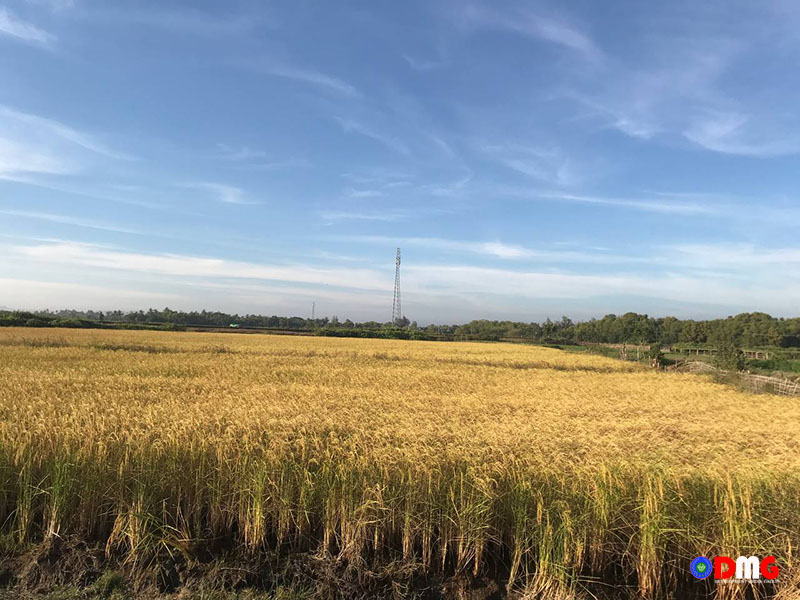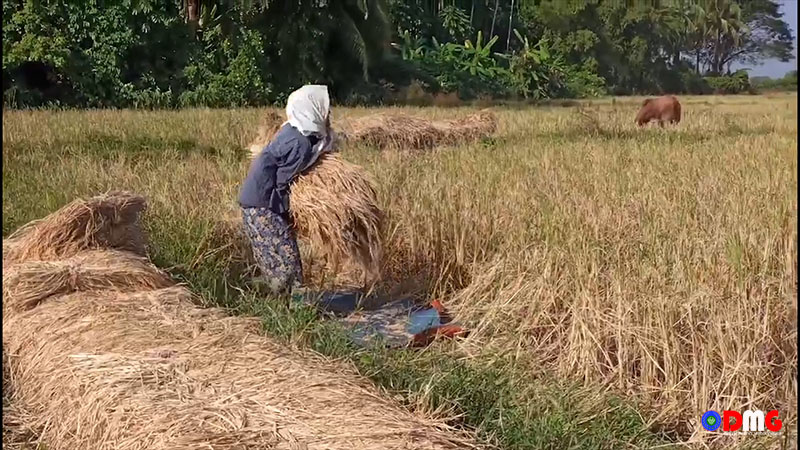- Weekly Highlights from Arakan State (Jan 26 to Feb 1, 2026)
- Arakanese youth stabbed in Mae Sot urgently needs financial aid for medical treatment
- Five years on Myanmar faces uncertain military and political outlook after coup
- Myanmar Navy detains Pauktaw fishermen and demands ransom
- Junta Airstrikes on Arakan and the Consequences for Independent Media
Field rats add to troubles for farmers in Chin State’s Paletwa Twsp
Some farmers in Paletwa Township, Chin State, are facing further declines in paddy yields due to rice-field rats eating and destroying their crops, exacerbating challenges already posed by climate change and armed conflict.
18 Dec 2022

DMG Newsroom
18 December 2022, Paletwa, Chin State
Some farmers in Paletwa Township, Chin State, are facing further declines in paddy yields due to rice-field rats eating and destroying their crops, exacerbating challenges already posed by climate change and armed conflict.
“Since the beginning of this year, all the paddy plants have been wasted due to the drought. Now the rice-field rats are eating the ripe paddy, and the farmers are facing more difficulties,” a local farmer in Paletwa told DMG. “For farmers who grew three acres of paddy this year, it is no longer in line with the forecast. Two acres of paddy yielded about 500 baskets last year, but an acre of paddy yields only about 100 baskets this year.”
Farmers who have lost their paddy fields due to climate change as well as the consumption of rice-field rats are worried about the upcoming paddy planting season because of uncertainties surrounding questions of capital, profit and profit estimates.
Some farmers have commented that the risk of rice-field rats in Paletwa Township is due to the flowering of bamboo this year.
“It is said that if there are bamboo flowers, there are many rice-field rats. Bamboo blooms once after 19 years. Rats come to rice fields due to the smell of bamboo flowers,” said a local farmer from Ward-3 in Samee town.

“It is true that paddy yield is lower in years in which bamboo flowers bloom,” said U Kyaw Zan, chairman of the Arakan Farmers’ Union. “The bamboo trees are destroyed by rats. We have experienced this situation in India. Tens of thousands of rice-field rats destroyed paddy fields in India.”
U Kyaw Zan went on to say that it is very difficult to deter field-rats from ravaging crops.
There were farmers who could not grow paddy, and also farmers who could not harvest their ripe paddy on time due to the effects of climate change and renewed hostilities between the Myanmar military and the Arakan Army (AA) earlier this year.
Less than 900,000 out of 1.2 million acres of arable land in Arakan State were cultivated this year due to the high cost of farming, conflict, and about 50,000 acres of farmlands that were damaged by storms, according to figures from the Arakan Farmers’ Union.
There are about 50,000 acres of farmlands in Buthidaung, Maungdaw and Rathedaung Townships that could not be cultivated due to renewed fighting and paddy yields are expected to decline by about 30 percent when compared with previous years, the Arakan Farmers’ Union said.















.jpg)

